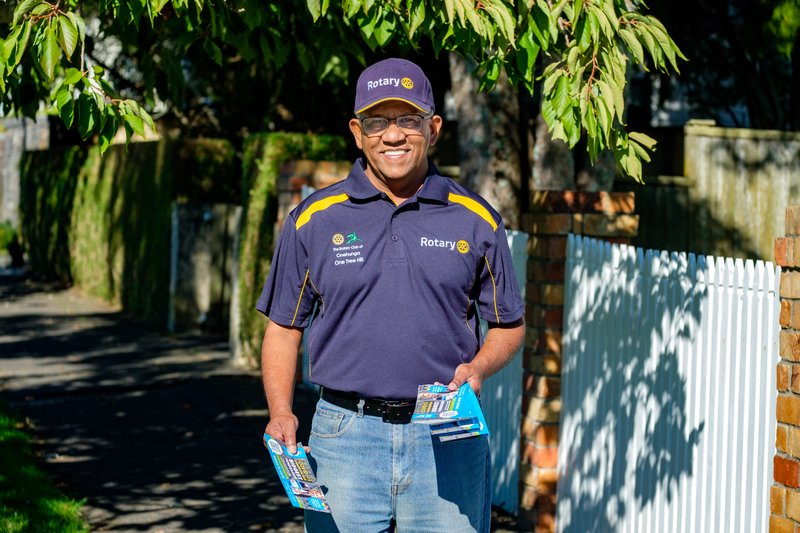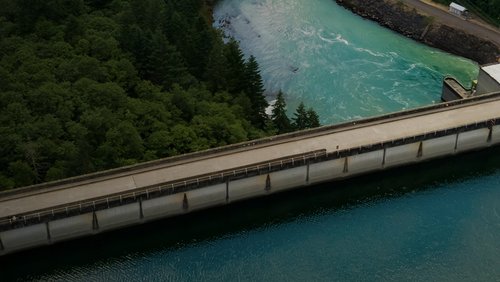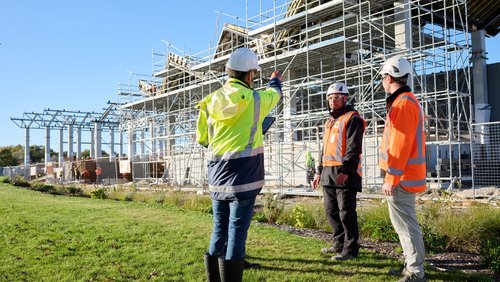20 Jun 2022
George Arulanantham ONZM QSM CMEngNZ CPEng IntPE(NZ) began his career in Thailand, then migrated to New Zealand in 1998. He worked first for Flotech Limited, a Kiwi company operating in Europe, North America and Asia, with roles progressing from engineer to chief engineer, then global service manager.
In 2012 he joined Worley, and in 2015 moved to Glidepath where he designs electrical and control systems for baggage and parcel handling systems. He was made an Officer of the New Zealand Order of Merit in the 2022 New Year Honours for services to the community.
What sparked your interest in community work?
I am inspired by my great-grandfather who established a church and a school in my home village 100 years ago (in which I studied my primary education). He donated all of his land and money to build the church and school and died with no property for himself or his two sons.
What do you enjoy most about this type of work?
I often work with people in real need or those who are voiceless, such as refugees, particularly those who come from war torn areas or places where human rights are violated based on religion and race. When I am able to help them get what they need, this gives me a great degree of happiness and satisfaction.
What’s the extent of your current involvement in community work?
I’m involved with the Institution of Engineering and Technology as an Honorary Treasurer and the Assessor, and in Onehunga/One Tree Hill Rotary as a director of international programmes. I’m Justices of the Peace Support Group Coordinator for the Mt Roskill/Three Kings/Hillsborough area.
What project makes you most proud?
In 2003 I formed a “Poonga” (Tamil community education facility) as a settlement strategy for Tamil migrants and refugees to give these children the opportunity to learn their mother tongue and keep their culture alive.
Does being an engineer bring any advantages to the way you approach these activities outside of work?
Definitely. Logical thinking and time management are skills I’ve learnt in my professional life that help me with critical decision making and organising tasks. The codes of ethical conduct that I’ve committed to through engineering institutions have also helped guide my work.
What impact has Covid-19 had on your voluntary work?
It has impacted it in many ways including our Rotary Club street collection for the Cancer Society which had to go online but included a household flier drop. We were also unable to attend the opening ceremony for the school that we built in Vanuatu.
How does your work help celebrate diversity in the community?
By helping keep the Tamil language and culture alive through our children, we can add to the melting pot that is New Zealand. This provides a chance for all New Zealanders to experience diversity at home.
[How do you manage to juggle this work with your engineering work?
On weekends, I usually wake up between 4am and 5am to do community work such as answering emails and other administrative takes. In the beginning, (2000–09) my whole family (my wife and daughters) were helping in many ways.
You received a Queen’s Service Medal in 2012 for services to the Tamil community. Does this 2022 recognition build on the work you did to earn that Honour?
Yes – I’m very proud of the Honour I have received but it is really a reflection of the work that many have done before me, and I hope that many will do after me.

George Arulanantham. Image: Tim Hamilton




